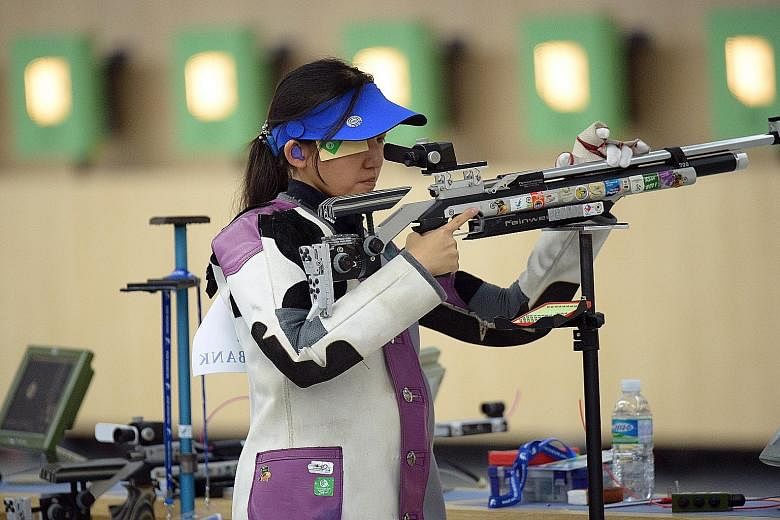If an athlete does not dribble a football, swish a tennis racket, race a car, dunk a basketball, pitch a baseball, putt a golf ball, then, well, she could be in trouble. She might, in fact, be nobody.
She might play a sport which is not even listed as a separate discipline on major sporting websites but is found under "other sports". She might accept that she will never show up in Forbes' list of the richest athletes, will be safely unrecognisable on the street and that few may comprehend what she does. No sir, piste has nothing to do with alcohol but is the playing area in fencing.
And yet this athlete is uniquely valuable because she is part of the tribe of the unsung who become relevant only every four years. These are the overshadowed Olympians. The sailor, rower and wrestler. The judoka, archer and handballer. The fencer, canoeist and trampoliner.
They're plain crazy people because Andy Murray's dog who has a Twitter account will be more famous than them. If they win a major medal they might make a front page on a slow news day and then return to anonymity's embrace. Ever heard of Birgit Schmidt Fischer ? Ah, just a canoeist who won eight Olympic golds.
Yet, still, these athletes persist. Maybe that "love of the game" stuff is not yet a myth restricted to the movies. It's as real as Jasmine Ser, who punishes herself. Every day practice. Every second day double practice. She leaves home at 9am. First shot at 10.30am. Shoot till 3pm. Break. Restart training for second event at 7pm. Finish at 9pm. Stagger home.
Ser doesn't care who watches her. She's too busy solving shooting and dissecting "feeling" to be bothered by the fact that she, a Commonwealth Games champion, appeared in 28 stories in this newspaper this year and local footballer Safuwan Baharudin did so 107 times.
No, she just craves consistency and calmness because the Olympics are 297 days away and she hasn't qualified yet. Even shooters have only so much time.
Last year in the 50m rifle three-positions at the world championships the first five places got Olympic quotas. She came seventh. In the 10m air rifle at the 2015 Changwon World Cup, three quota places were on offer. She came eighth. In the 50m rifle three-positions at the Munich World Cup, there were two Olympic places. She came seventh.
She's just missing, she's so close, she's almost there. But now there's only one chance left in November.
So she, like the others in their indoor judo caves or outdoors in the unseen sea, keeps training, making incremental improvements that we can't see but they can tell. Ser is not yet a shooter better than everyone else but she is better than her own previous self.
In The Last Samurai, as Tom Cruise practises sword fighting, a warrior tells him, "too many mind". Cruise is thinking too much. Ser just wants to think evenly. She's spent a year teaching herself how to shoot with "the same mind". To keep the same constancy. To accept situations better. If the 10m air rifle final - two weeks ago - at the Asian AirGun Championships is to be held more than two hours after qualification instead of the usual one hour, then fine. She won't fret. She's less negative. She wins it.
But not everything is perfect. Not in her execution. In the 10m air rifle qualification she has 75 seconds for a shot, in the final she has only 50 seconds. She has to take her stance, steady, aim, trigger but she has to execute her entire process faster without being hurried, do it quicker yet as smoothly. She's improved at this but improvement isn't enough because she wants excellence. She wants it in the 50m rifle three- position, in the 10m air rifle, in everything. It is why she punishes herself with twice-a-day practices.
Next month, at the Asian Championships, is her final opportunity for Olympic qualification. It sounds stressful, all this mad training and ambition now distilled to this last chance. But she, once vibrating with intensity, has a growing serenity. "There's no time to think of stress. I'm too busy focusing on technique, process, control, feeling."
Sport needs such people because it requires dreamers and oddballs. Journalists also need these athletes for they aren't burdened by massive ego or manipulative agent. They'll let you into the mysteries of their sport and let you hold a rifle, or sit in a canoe, or in gymnast Lim Heem Wei's case take a look at her feet with its dead skin, bandaged toes and sometimes fallen-off nails.
We don't know if Ser will qualify, or if a canoeist will flourish, but through their doggedness these athletes achieve something profound: They become ambassadors of minor sports which are struggling to stay relevant in their nations and often even beyond.
If everyone thought, no fame, no money, let's join a bank and settle down, then a sport would crumple in a corner and expire. Which is why an athlete like Ser is consequential: By devoting herself to her art she is inadvertently giving it life.


